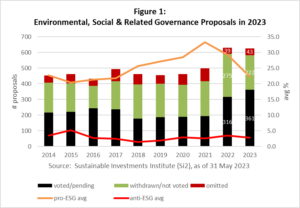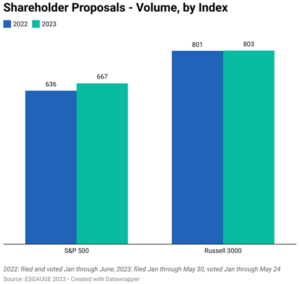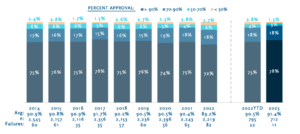Olivia Knight leads As You Sow’s Racial Justice Initiative. Related research from the Program on Corporate Governance includes The Illusory Promise of Stakeholder Governance (discussed on the Forum here) by Lucian A. Bebchuk and Roberto Tallarita; How Much Do Investors Care about Social Responsibility? (discussed on the Forum here) by Scott Hirst, Kobi Kastiel, and Tamar Kricheli-Katz; and Social Responsibility Resolutions (discussed on the Forum here) by Scott Hirst.
In May 2020, the world witnessed the horrific death of George Floyd, shocking Americans into confronting the racial injustice experienced by Black Americans daily. This event forced a re-evaluation of our most fundamental beliefs and institutions and became a catalyst for change. As You Sow, the nation’s leading non-profit in shareholder advocacy, created the Racial Justice Initiative to hold corporations accountable on the racial justice statements issued in response to George Floyd’s murder and the national uprising demanding eradication of systemic racism. Corporate public statements of support for Black communities were released quickly, some as vague and noncommittal as the corporate actions that followed. Other companies expressed profound commitments to sustained efforts to eliminate systemic racism and are actively working on promoting racial justice. The purpose of the Initiative is to monitor these corporate responses and follow up with companies to ensure that the statements of support for racial justice are translated into concrete actions that truly promote equity thereby helping them on the path to end corporate complicity in systemic racism.
Corporate Engagement on Racial Equity and Diversity, Equity and Inclusion
There is growing acknowledgement that systemic racism is the underlying cause of discrimination and injustice, and that corporations are complicit in perpetuating systemic racism. Despite the well-documented material benefits that companies gain through diversification, corporations have been slow to realize the critical role they play in perpetuating systemic racism. First steps have been taken by many companies by acknowledging the inequities that exist and expressing a willingness to change. Our role, as shareholder advocates, is to educate companies so they can examine the implicit biases built into their systems. The Racial Justice Initiative helps companies achieve an antiracist perspective to enhance their business models and create a direct positive impact on the lives of all stakeholders.
Since 2020 the Racial Justice Initiative has developed Racial Justice Scorecards on the Russell 1000, which track publicly available information on key actions related to racial equity, diversity, equity and inclusion (DEI) disclosure and policies, and environmental justice. We update our data quarterly, giving companies we engage with the opportunity to improve throughout the year. We conduct our annual deep-dive research from May – September. Our Scorecards serve as educational tools, guidelines to help a variety of stakeholders understand and gauge corporate progress on racial equity.



